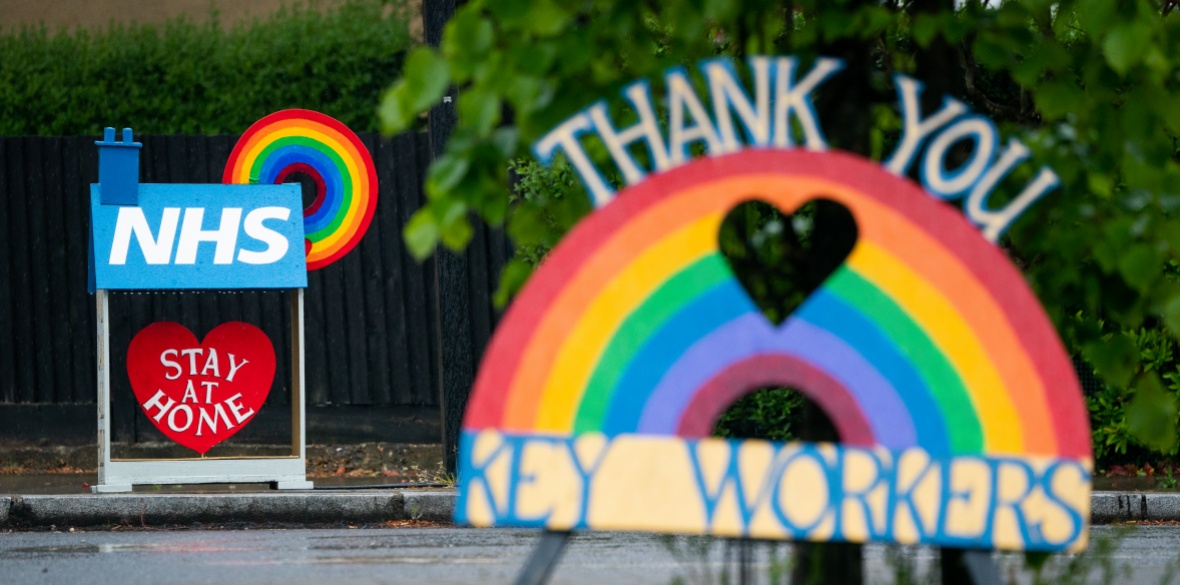This is the last article you can read this month
You can read more article this month
You can read more articles this month
Sorry your limit is up for this month
Reset on:
Please help support the Morning Star by subscribing here
FOLLOWING the financial crash of 2008, billions were poured into bailing out the financial sector.
The people of Britain ended up paying a heavy price for this financial crisis that they didn’t create.
The resulting human suffering was officially called “austerity” as people found they couldn’t afford to buy enough food, they couldn’t get housing any more, their benefits were cut, their pay was frozen and services they relied on as a lifeline disappeared forever.
What also set in during this period was a growing employment culture of precarious work, rock-bottom pay and long hours, while we were all told that employment was at “a record high.”
The number of “entrepreneurs” increased, running their own businesses, and it was widely accepted that some would be unable to pay the wages and benefits that workers needed to sustain themselves and their families — so the exploitation of workers became the norm.
In-work poverty became a feature of everyday life for increasing layers of workers.
The rise in foodbanks and the rise in homelessness and destitution is a national scandal that has been created and subsequently ignored for years by those who held the power to change it.
Even the fact that three-quarters of the four million children who live in poverty have working parents was not enough to make the government change its course.
TUC research shows that between 2008 and 2018 public-sector workers lost between £4,000 and £6,000 of their wages while ancillary workers were forced out of public services into private companies.
Outsourcing increased as the public sector struggled with its wage bill under the weight of the deliberate financial squeeze, and outsourced key workers were plunged into poverty by their ruthless new employers.
The workers who have kept Britain running during the pandemic are the very people who have seen their wages, terms and conditions deliberately pushed downwards over many years.
GMB union members are left in a position where they have to work up to 60 hours a week or work two jobs just to pay rent and keep food on the table.
Shortfalls in pay for hours worked is now common practice, which leads to additional financial hardship for key workers and their families.
The combination of long working hours, declining pay and wage theft has affected key workers and the wellbeing of their families.
Key workers in the NHS in London are increasingly angry about their deteriorating pay and conditions and the way they have been treated as they serve the nation during this pandemic.
They have already been getting organised and joining collective trade-union activity while facing down bullying and repression from management.
It is worth noting that the more organised NHS workplaces like Lewisham hospital and Epsom and St Helier hospital are the ones that are winning significant pay rises and they are gaining the most ground in challenging health-and-safety breaches on behalf of members during this pandemic.
What the pandemic has revealed is that significant sums of money can once again be found to bail out capitalism.
It has shown that urgent and far-reaching financial packages can be put in place when the political will is there to do it.
The years of lies that “there is no money” have been laid bare and it must be clearer than ever before that pushing working people downwards into poverty while enabling the richest in society to further enrich themselves is a political choice and not a necessity.
GMB members are making it clear to the union that they have gone in to work and risked their lives during this pandemic so they expect no less than significant pay rises.
Our members have been patient but we know many are angry too, so GMB has already written to the Chancellor and warned that our members will certainly not tolerate a pay freeze.
Fresh pay negotiations are opening up in the NHS and in other areas so now is the right time to secure the significant pay rises that key workers need and deserve.
Unions now have an opportunity to join together at national level and put in the type of pay claims that could start to raise all key workers and their families out of poverty for good.
All trade-union leaders must robustly challenge any ideas that it’s necessary to keep the working class poor in order to control inflation.
It is inevitable that a Tory government and employers who have ignored the years of damage they have caused to the fabric of society by imposing low pay and precarious work will resist efforts to drive up pay during negotiations.
As low offers come back, unions can leverage our growing membership to mount joined-up campaigns to reject these offers and recruit and organise new layers of workers as we do it.
GMB stood alone in doing exactly this when the last pitiful three-year NHS pay deal came down the line and when we balloted our members we secured a resounding rejection.
Securing significant pay rises is a necessary investment for the future which will ensure that rising numbers of children with working parents who currently live in poverty don’t become cannon fodder for the prisons and the mental-health system in years to come.
Key workers need a pay rise and that are no excuses left not to demand these pay rises and organise our members properly in order to secure them.
Helen O’Connor is GMB Southern Region organiser.











